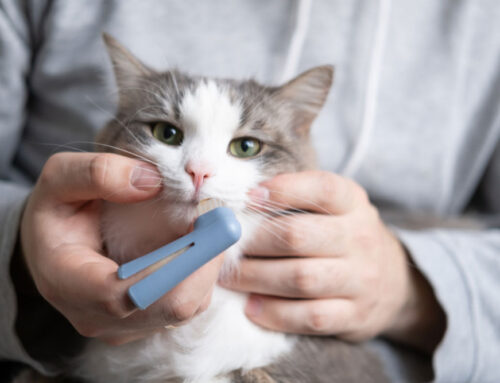As pet owners, we all want the best for our furry, feathered, or scaly friends, but rising veterinary costs and the increasing prevalence of pet health issues have left many owners wondering, “Does my pet need health insurance?” Our Palm City Animal Medical Center team explores pet health insurance benefits, offers tips to get the most value from a policy, and explains how pet and human health insurance differ.
Pet health insurance benefits
One pet health insurance’s primary benefits is financial protection. Veterinary bills can add up quickly, especially in emergency situations or for chronic conditions. Pet insurance helps mitigate these costs, ensuring that you won’t need to make difficult decisions based on finances alone.
Knowing that you have a safety net allows you to focus on your pet’s health and well-being, without the constant worry about potential costs. This peace of mind can be invaluable, especially during stressful health crises.
With insurance, pet owners are more likely to seek veterinary care promptly rather than delaying treatment because of cost concerns. Early diagnosis and treatment can lead to better health outcomes and a longer, happier life for your pet.
Tips for understanding pet health insurance
Not all pet insurance policies are created equal, so thoroughly research the different providers and compare policies. Look at coverage options, exclusions, premiums, deductibles, and reimbursement rates.
Before locking into a policy, ensure you understand the coverage completely. Common exclusions may include pre-existing conditions, certain hereditary or congenital conditions, and specific treatments or services. Knowing exactly what’s covered will prevent unpleasant surprises when you file a claim.
To determine the best insurance for your pet, consider breed, age, and pre-existing conditions. For instance, breeds prone to certain genetic conditions likely will benefit more from comprehensive coverage. Insuring your pet when they are young and healthy can mean lower premiums and more comprehensive coverage. Most insurance providers do not cover pre-existing conditions, so starting early also ensures coverage of future health issues.
As your pet ages, their health needs may change, so review your policy regularly to ensure it still meets your pet’s needs. Some insurers allow adjustments to the coverage or deductible as your circumstances change.
Differences between human and pet health insurance

Understanding the differences between human and pet health insurance can help set realistic expectations and guide you in choosing the best policy for your pet. Key differences include:
- Reimbursement model — Unlike human health insurance, which typically involves co-pays and direct billing, pet health insurance operates on a reimbursement model. You pay your veterinary bill upfront and then file a claim with your insurance provider. Once the insurance company approves your claim, they reimburse you based on the policy’s terms. Veterinary-direct pay, which allows you to avoid fully paying an invoice and waiting for reimbursement, is seldom offered.
- Coverage and exclusions — Pet insurance policies often have more exclusions than human health insurance. Common exclusions include pre-existing conditions, breed-specific issues, and elective procedures, so you must read the fine print and understand what is and isn’t covered.
- Premiums and deductibles — Pet insurance premiums can vary widely, based on factors such as the pet’s age, breed, and location. Deductibles may be annual or per incident. By contrast, human health insurance typically standardizes the premium structure according to broader factors such as employer contributions and regulations.
- Network restrictions — Most pet insurance policies do not restrict you to a network of providers. You can choose any licensed veterinarian, which gives you greater flexibility. Human health insurance often requires that you choose from a network of approved providers, especially for specialist care.
Pet health insurance, by offering financial protection, peace of mind, and better health outcomes, is a valuable investment in your pet’s well-being. When you understand the benefits and differences from human health insurance and follow these tips for policy selection and management, you can ensure your pet insurance provides the most value. If you are struggling to choose a policy for your pet, do not hesitate to contact our Palm City Animal Medical Center team to discuss your options.








Leave A Comment